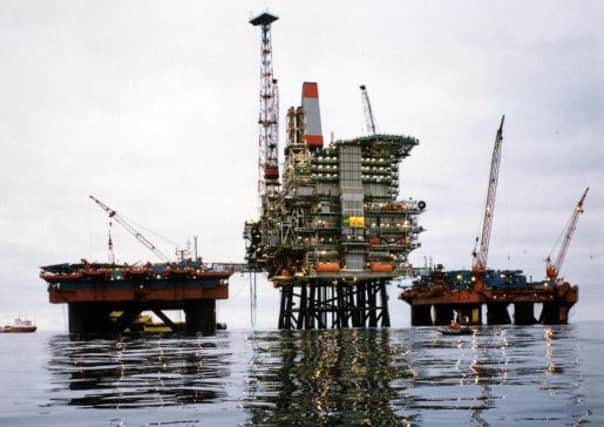Leaders: Numbers mask Scots economic predicament


Could an independent Scotland hold its own, financially? Or would we be better off staying within the UK?
This year there are two additional factors that give the Gers announcement added spice.
Advertisement
Hide AdAdvertisement
Hide AdThe first is that everyone knows these numbers – covering the financial year 2013-14 – paint a picture that is vastly out of kilter with current reality.
Gers always lags behind events, but this year it fails to take into account one of the most significant events in recent Scottish economic history – the collapse of the oil price to less than half its level a year ago.
Unionists yesterday claimed that if Scotland had voted Yes last September, the country would now be heading for independence with a £6 billion black hole in its finances, necessitating large scale cuts in public services and/or massive tax rises.
Nationalists can justly argue that this fails to take into account the boost to productivity that they predict would be the consequence of the move to independence. But there is no hiding the fact that the low oil price drives an oil tanker through the SNP’s vision for the financial footing of an independent nation.
The second additional factor stems from one of the SNP’s key strategies for the forthcoming UK general election. It was first announced, somewhat curiously given that he is no longer party leader, by Alex Salmond, but subsequently confirmed by Nicola Sturgeon. It is that the SNP will be fighting this election on a policy of Home Rule for Scotland.
The SNP definition of Home Rule is that Holyrood would control everything except defence and foreign affairs. All other tax and spending decisions would be the sole responsibility of MSPs.
This leaves the Nationalists open to the charge that Home Rule would entail the same financial black hole as independence, and that Scotland would be forced to endure the same devastating consequences.
It is true that Scotland – fully independent or within the UK with Home Rule powers – could ameliorate some of this deficit through aggressive borrowing.
Advertisement
Hide AdAdvertisement
Hide AdBut is there really an appetite in Scotland, as we emerge blinking from a recession at least in part attributable to huge personal and national debt, for a recourse to borrowing on the scale that would be necessary?
What both of these factors have in common is that they are a big headache for Ms Sturgeon as polling day approaches.
And they are a sure sign, if one was needed, that the independence issue will continue to be a defining feature of the Scottish political debate.
Name game gets political
WHAT’S in a name? An entire political philosophy, if a look at the list of registered births in Scotland in 2014 is anything to go by. The year of the independence referendum was marked with two babies called Freedom and four – three girls and one boy – called Indy.
Without interviewing the parents, it is hard to be sure, but one imagines these children were named by Yes campaigners in a flush of enthusiasm for the independence cause, and the anticipation that the year of their birth would go down in history as the year Scotland choose, well, Freedom and Indy.
It is not clear if these children were born before or after 18 September’s anti-independence result. Nor is it known if Scotland’s verdict at the ballot box produced a swift recourse to the deed poll service.
This enthusiasm for the politics of the referendum does not seem to have been replicated on the other side of the nation’s binary political divide. There were no Britannias or Boudicas registered in 2014. Not even a Betty-Together.
Nor was there any evidence that enthusiasts for other constitutional variants were moved to name their children after their preferred system of devolved governance.
Advertisement
Hide AdAdvertisement
Hide AdScotland still lacks a wee boy called Devo Max, for example. The nursery school rolls will not include Union Dividend Duncan any time soon. And as for Asymmetric Federalism Fraser, well, we may be waiting a while for that one. People have always named children to reflect beliefs – although it has usually been religious, not political beliefs. Time will tell if this is a one off or a new trend.
FOLLOW US
SCOTSMAN TABLET AND MOBILE APPS